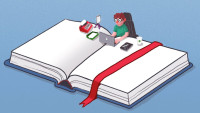
You wrote a book! Now make a viral TikTok about it.
mashable.com – Sunday October 15, 2023

Authors can no longer succeed in their craft by writing alone. They must embody multiple roles: writers, publicists, digital marketers, and social media managers. They must be rabid in their self-promotion and steadfast in their personal branding. They have to produce viral tweets, create viral TikTok videos, and optimize their Instagram accounts so that they can get paid to do the work they want to do.
In 2023, writing a book is the easy part.
That's not to say that self-promotional branding is a novel concept for writers. In the 18th and 19th centuries, authors pulled off some wild stunts to build their brands in newspaper column inches. In the 1920s, Virginia Woolf went shopping with Vogue. Ernest Hemingway did photo ops on safaris and fishing trips. John Steinbeck posed for beer ads. And beyond that kind of classic self-branding, promotion in the 1900s involved a significant amount of personal networking. Anne Sexton, for instance, became a literary star not only because she was an exceptional poet, but also because she was the daughter and wife of salesmen and excellent at self-promotion, as Joy Lanzendorfer pointed out in LitHub. Sexton, who won the Pulitzer Prize for poetry in 1967, tried aggressively to get her work seen. She was ambitious, sending her poems to dozens of publications at a time and hunting down poets she admired, flirting with them, and then demanding they mentor her.
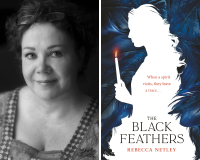
Rebecca Netley on the difficulties of writing ghost stories
culturefly.co.uk – Thursday October 12, 2023

As a long-time lover of supernatural and ghost stories it had always been my burning ambition to write one. My first book had been a thriller and I hadn’t anticipated the particular difficulties that might confront me when moving to this particular genre.
I am in complete agreement with Susan Hill who famously said of writing ghosts stories: ‘Less is more.’ Greater fear is generated by suggestion and ambiguity than by a fully-formed apparition – the shadow behind the door, the singing tones of a ghostly child, a rocking-chair moving on its rockers with no apparent cause and footsteps in an empty room. Once you present the ghost, although the moment should be fear-inducing, it is actually the instant when some fear is dispelled.

What Was Literary Fiction?
thenation.com – Tuesday October 10, 2023

As an English professor, I’m often asked, “What do you like to read?” Sometimes I answer, “Literary fiction.” By that phrase, I mean fiction that privileges art over entertainment. I did not know until recently that literary fiction—the phrase, not what it stands for—grew up with me. We’re about the same age. And while I hope I’m only midway through my life, literary fiction might be dead. More precisely, what might have died is literary fiction as a meaningful category in publishing and bookselling.
The term “literary fiction” began its rise about 40 years ago. In the summer of 1980, John Dessauer, a book industry analyst, raged against those who were bemoaning the state of publishing. A wave of mergers and acquisitions had consolidated the industry in recent years, as once-independent publishers were absorbed by conglomerates. Gulf + Western owned Simon & Schuster. Pearson owned Penguin, which had merged with Viking to form Viking Penguin. S.I. Newhouse had just acquired Ballantine, Knopf, Pantheon, and Random House from RCA. Eventually, just five multinational conglomerates—the Big Five—would control most of trade publishing.
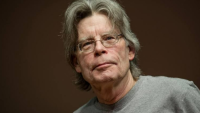
13 Best Writing Tips From Stephen King
timesnownews.com – Saturday October 7, 2023

Stephen King is one of the contemporary era's most successful authors. In this article, we'll take a look at 13 of his best writing techniques, drawn from his book On Writing: A Memoir of the Craft as well as interviews and lectures. These suggestions will help you enhance your writing abilities, whether you are a novice or an experienced writer.
Building a writing life
eu.sctimes.com – Sunday October 1, 2023
For the past 45 years, I have written almost every day. I make my living as a fulltime freelance writer, which I‘ve wanted to do since seventh grade, when I wrote my first very short book titled "The Secret of the Lost Inca Mines." What could be greater than making up stories and getting paid for them, I thought. Almost everything I’ve written for the past 40 years has been published.
I’ve written features, interviews, anecdotes, poetry, short stories, even a play, for magazines as Toy Farmer, Reader’s Digest, Houseboat, Arizona Highways, Saturday Evening Post, Sr. Perspective, and 240 others.
But my most potent joy has emanated from writing essays. They require me to think, often deeply, to dig the ore of words from the rock, and tumble them in order onto the paper to make the piece work. Or sometimes dig out diamonds of exactly the right words that add beauty, and make the sentences sing.
It’s satisfying to discover that many people like what I write, or how I write it. But that was not always so. My career began inauspiciously. In 1977 I resigned from teaching English to be a writer. Though I had never sold a single piece of writing, I was sure I knew enough and was good enough now that I could make my living at writing.
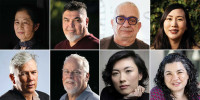
The Art of Writing
altaonline.com – Monday September 25, 2023

Each month, noted authors join Alta Journal’s California Book Club to discuss their work during a free online gathering. Here are some insights into their craft, in eight of the authors’ own words.
JULIE OTSUKA ON SYMBOLISM
“If you let your unconscious write a story, then these symbols will emerge without you really realizing what it is that you’re doing. It’s always fun when people see things in your work that you didn’t—you weren’t even aware of doing. Just because you didn’t realize that your symbolism was working in a certain way doesn’t mean that it’s not there. But that’s what I love about the act of reading. Every reader brings something different to the work.”
STEPH CHA ON RESEARCH
“One of the ways I researched [Your House Will Pay], because I actually don’t really like research, is I just talked to people as I ran into them.… People hold on to all these stories, and they’re not even necessarily holding on to them tightly.… Sometimes they’re just waiting for people to ask. But I think something that I’ve learned by writing crime fiction is just how close all of this hurt and violence is to the surface for so many people and how it’s just a part of our lives that is waiting to be uncovered.”

Screenwriter David Hannam shares tips for would-be TV writers
artshub.com.au – Sunday September 24, 2023

Screenwriter and producer David Hannam has a slate of original projects in development in Australia and the UK. He is a writer and executive producer on Acorn’s first Australian original drama Darby and Joan, starring Bryan Brown and Greta Scacchi, which was released in August 2022 to critical acclaim. He is currently developing season two, after consulting and writing for Paramount+ music industry thriller Paper Dolls.
Here, he shares some tips and tricks of the trade ahead of a Masterclass with Media Mentors Australia.
How and when did you get into writing for screen (and was it always an ambition of yours)?
My writing career is a fortunate accident. In a biopic, it’d go something like this …

It’s About Time!
altaonline.com – Wednesday September 20, 2023

Heed the advice of some literary heavyweights to create an ideal writing routine.
The perfect writing routine! Every writer dreams of it, and every writer knows, deep down, that there is no such thing. There are simply too many variables at play—ambition, temperament, material circumstances—to reach a one-size-fits-all solution. But! Could one identify the building blocks of the perfect routine, to be applied to individual writing practices on an ad hoc basis? Here is an attempt, with copious supporting examples.
RULE NO. 1: SCHEDULE DISCRETE FOCUS BLOCKS
Writers with day jobs may fantasize about having long expanses of unstructured creative time, but let’s be honest: there is no greater drag upon a writing practice than having the full day available for it, which practically guarantees a long, flabby drift rather than a focused effort.
In a practice that is all about increments of labor, the first step is to define your daily dose.

Traditional Publishing in the 2020s
By G. Miki Hayden
Instructor at Writer's Digest University online and private writing coach
firstwriter.com – Friday September 15, 2023

Don’t abandon all hope ye who want to enter into traditional publishing this decade, but you might consider changing what you’re looking for.
I recently had an article covering self-publishing on this site, for which I interviewed some writers who have been self-publishing. I wanted then to discuss what we call “traditional publishing” and thought about who I might interview for such a piece.
Indeed, I know people who publish traditionally, but the idea of interviewing most seemed useless because they have been putting out their books in the mainstream for quite a while, decades in some cases. Talking to them wouldn’t give the great majority of us who wish we were in their shoes much information. And much of traditional publishing still follows the same model, but it has changed.
So let’s start with what traditional publishing is. The authors are the supplicants, first-off to gain an agent who knows the publishers and their needs and will sell for the selected clients.
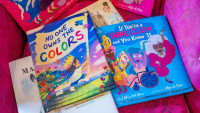
To hell with woke publishers
spiked-online.com – Wednesday September 13, 2023

The gatekeepers of the creative industry are riddled with a nasty strain of identity politics.
ASH Literary is on the hunt for budding children’s book authors. ‘We are actively seeking voices that have historically been underrepresented’, the submissions section of the agency’s website tells us. ‘For example, we are not interested in stories about white, able-bodied [Second World War] evacuees, but would welcome that story from a disabled, LGBTQ+ or BIPOC [black, indigenous or people of colour] perspective’, it explains.
Leaving aside for a moment the big question of what on Earth the term ‘indigenous’ could possibly mean in a British context, this reads like a sophomoric parody of the modern publishing industry. But I’m afraid it is real. And when we stop laughing at the thought of a blue-haired ‘nonbinary’ stepping nervously off a train at a remote rural station in 1940 – which would be rather like Neville Chamberlain bopping along to some Chiptune – there is something quite troubling about this stuff, uncovered among other examples by Charlotte Gill in the Sunday Telegraph.
The nub of things comes a little later on the same page of the ASH agency’s site, which reads: ‘If your book is about an identity that is not yours, we will not be a good fit.’ What a grim traducement of the power and the purpose of literature – of humanity, even – that nasty little sentence is.
Get the free newsletter | Submit a news item or article | Get Writers' News for your website





